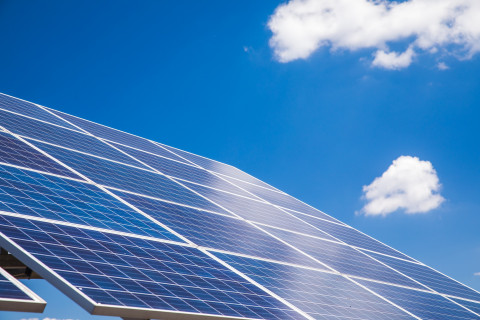The development of any society is driving by the uninterrupted availability of energy supply. Unfortunately, conventional energy sources—fossil fuels—do not only have finite availability, they also contribute to the global greenhouse emissions on a major scale. Renewable energy sources such as solar, wind and hydro are by their very nature, replenishable and unlimited in their supply. Their utilisation for our energy needs also contribute to mitigating climate change. They are sustainable energy resources. Hence, societal development driving by renewable energy underscore the very essence of sustainable development. Sustainable development constitutes intergenerational economic, social and environmental development. Nana Asare Obeng-Darko's public examination online on 9.12. at https://stream.lifesizecloud.com/extension/6366143/2b359a50-c514-4891-8be3-c28caca36647.
Focusing on sub-Saharan Africa and using Ghana as a case study in his dissertation, Nana Asare Obeng-Darko examined, from both legal and policy perspectives, why it is important to effectively regulate the utilisation of renewable energy source for electricity production in order to achieve access to affordable, reliable, sustainable and modern energy for all people by 2030. The government of Ghana aims to achieve its SDG 7 commitment under the 2030 Agenda by developing, managing, and utilising the country’s renewable energy sources to generate electricity in an efficient and environmentally sustainable manner. The topic of his doctoral dissertation is “On the Rules and Regulations Governing Electricity Production from Renewable Energy Sources in Ghana: An Examination of Ghanaian Renewable Energy Law and Policy”. His research about renewable energy regulation in Ghana finds that there are significant regulatory issues impeding the achievement of the renewable energy integration target and, without necessary changes to the regulatory approaches, the nation’s commitment to SDG 7 will not be fulfilled. Some of the regulatory issues include lack of regulatory independence; issues of regulatory non-performance, credibility and commitment; inadequate support schemes; overambitious renewable energy policy goals; infrastructural deficiencies and inadequate funds. His research also examines renewable energy regulation in both Gambia and Nigeria, and the findings suggest that there may be similar regulatory issues impeding renewable energy developments across sub-Saharan Africa. His research finally recommends ways in which renewable energy regulation may be improved to not only help achieve national renewable developmental goals but also the aims of SDG 7 across sub-Saharan Africa.
The doctoral dissertation of MICL, MSc Nana Asare Obeng-Darko, entitled On the Rules and Regulations Governing Electricity Production from Renewable Energy Sources in Ghana: An Examination of Ghanaian Renewable Energy Law and Policy, will be examined at the Faculty of Social Sciences and Business Studies. The opponent in the public examination will be Professor Henrik Bjørnebye of the University of Oslo, and the custos will be Professor Kim Talus of the University of Eastern Finland.
